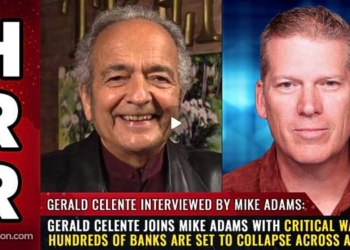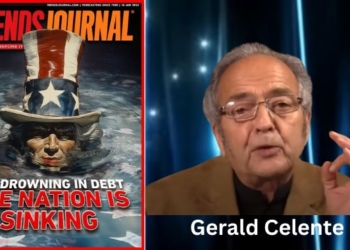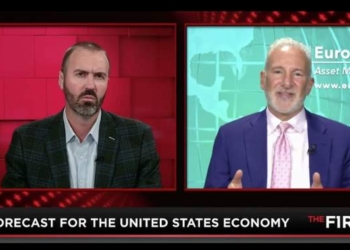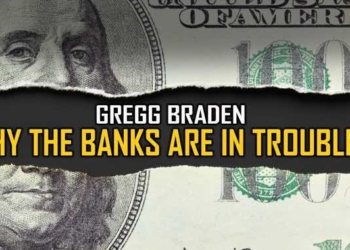Source: The Chopra Well
The following is the full transcript:
Hi, good afternoon. This is Deepak and I have an interesting topic to discuss with you today. I'm calling it “The Metaphysics Of Money- The Seven Laws Of Abundance.”
One of the reasons I chose this topic is that I find that money is the main cause of misery and unhappiness in a lot of people. We've heard the expression in the Bible that the root of all evil is money or the love of money or something like that. And so, is there some truth to it?
I find two categories of people who are usually extremely unhappy when it comes to money: those who are very poor and those who are extremely rich. The reason I believe is that all they think about is money. So, if all you think about is money, if your identity is tied to money, and if all your all your behavior and interactions with people and the world are around money, then you're likely to be unhappy.
And, yet money is also required to make a living, to survive, to buy goods and services, to take vacations, to pay bills. It's part of our life and without money the world would come to a stop.
So, I thought maybe I would share with you some ideas of what money is and how to create wealth consciousness. But even beyond that, how to experience wealth consciousness as a fundamental reality of our being, of our nature.
I asked many people what they thought about this topic the metaphysics of money, the seven laws of abundance. And some of them said they didn't like the phrase the metaphysics of money and some said well it's probably similar to the seven spiritual laws of success and therefore there's nothing new to it.
So what I thought is I'll share this with you and then you tell me whether this is worth pursuing because I could theoretically do a book on it if you want. But I'd love but I'd love your feedback, okay, on the title “the metaphysics of money” and also the subtitle “the seven laws of abundance.”
And what you think about these titles and whether you think I should pursue this in greater detail. I'd love that feedback from you and look for it and it will definitely influence my decision to elaborate on this, okay?
So, a lot of people of course you know not familiar with the word metaphysics. Some call it whew and mumbo-jumbo. But essentially metaphysics is the branch of philosophy that deals with the first principles of things, including abstract concepts such as the nature of being, fundamental reality. hat is the nature of knowing, what is the nature of substance, what is cause and effect, what is space and time? These are things that metaphysics deals with.
Some people are saying the book would be amazing. So that's good. Yes I'm getting feedback. Yes, please do this book. So let's see, okay?
So, having explained what metaphysics is, let me go to very fundamental things. The first thing you have to understand and by now if you're following me on these videos, then you'll agree with me that money is a human creation. It is a human construct. In other words, we made it up. just like we made up latitude and longitude and Greenwich Mean Time, we made up the concept of money.
It's our collective agreement on how we value things and how we exchange values. So before there was money, basically there was barter. You know, I'll give you a haircut and you repair my shoe. I'll give you my chicken and you can help me be wash the dishes. So, basically it was exchanging services and exchanging things that we didn't have for things that we had.
It was pretty inconvenient, so people started creating little symbols. It was coins, little pieces of metal, copper or anything and that could represent value. Okay, so instead of me giving you a haircut and you repairing my shoe, we use this little symbol. And then ultimately it became paper. And basically, it said I owe you this, and this is how you can spend it. And so money started.
Along with money started commerce and along with other human constructs. We ended up with empires and nation-states and what we call human civilization, and a creation of our collective consciousness. That's the origin of money.
And now, of course, money rules the world. There are countries so poor that they have huge problems: epidemics, violence, and all kinds of corruption and cronyism and influence peddling and issues like money laundering. Money laundering is an essential part of how big organizations indulge in terrorism. Without money, you can't go to war.
And, so money is creating problems in very poor countries and it's no different in very rich countries. Money is the source of corruption and cronyism and influence-peddling, and bureaucracy, and violence, and greed, and everything that we are troubled by that creates anguish and unhappiness.
So, what is the best way to understand money? And what is the best way to generate it? What is the best way to spend it and
what is the best way to earn it? And with that in mind, I created these seven laws that follow the same principles of the seven spiritual laws. Okay? And I'm going to call them the seven laws of abundance.
The first law of abundance is that the source of abundance is infinite. Once again, the source of abundance is infinite. Why? Because the source of every experience is consciousness and consciousness is by definition non-local. It has no form and therefore it's infinite.
And the source of all experience is infinite. Therefore, it can never be in short supply. So, if we think deeply about this first law, the source of abundance is infinite, then of course we want to get in touch with that source. And that source is our innermost being, which is the field of all possibilities, the field of unpredictability, the source of intention and desire, the field that is evolving in the direction of truth, goodness, beauty, harmony, and love. It’s the field that is inexhaustible as a source for ongoing creativity and abundance.
And it is simple to get in touch with the source by transcending the mind through meditation, through self-awareness, through self-reflection, through self-inquiry, through mindful awareness of every experience: mindful awareness of body mindful, awareness of the processes of the mind, mindful awareness of the web of relationship, mindful awareness of mental space.
And to engage this source of infinite possibilities by asking questions and receiving answers. I've been in the habit of doing that every day all my life and reviewing this process every night before I go to sleep.
Law number one: the source of abundance is infinite.
Law number two: whatever you want to receive (and let's say this is the second law) whatever you want to receive, start by giving. So, we can, you know, start with simple things. If you want attention, you pay attention to others. Of you want respect, you give respect to others. If you want love, you give your love to everyone that you meet. And respect love, attention, affection, appreciation and acceptance are very simple things to start with.
But, if you want to generate wealth, then figure out a way to generate wealth for others. And also figure out how you can activate abundance consciousness in others. And one way to do this is also to experience gratitude. So, when you experience gratitude it opens the door to abundance consciousness.
Think of all the things you're grateful for: material things, relationships health, on and on, career. And as you open the door of gratitude, it leads to the realm of abundance. Start with giving.
Once in a while, when I'm in New York City I go to the bank and I get some cash. And then I walk around the city giving cash or dollars to homeless people on the street. And don't do it casually. Do it sincerely: look them in the eyes, talk to them, and see their reaction when you give them $20 or whatever. You will see the gratitude in their eyes and you’ll feel a connection between spirit and spirit.
And, so this exchange (by the way that's what money is also called the exchange – the currency of exchange), so start with that process and live in that process.
Don't stop the flow of abundance by hoarding money. If you hoard money it's of no use, right? What are you going to do with it f you just hoard it spend it? Spend it on yourself, spend it on others, spend it on your friends, spend it on charity, spend it for a cause, spend it for an experience. And always think: what's the best use of the money that I have?
Okay that's number two.
Number three and these are just principles right now that I can expand on if you want me to. If you want me to do in this, write about this as I listen for your feedback and I'll really expand on this.
Law number three: money is the exchange of values. In fact, the way a society spends money is a clue to their values. So, right now, most wealthy nations and even some unwealthy nations (poor nations) are spending money on weapons, on mechanized death, on drugs, alcohol, on gambling, on sleazy stuff. And that only represents the collective consciousness of bad money, bad karma. Therefore, stay away from any way that generates money through harm.
And this is what the great teacher of all time, the Buddha, he said Right Livelihood. So Right Livelihood is that kind of livelihood that creates joy in the world, that increases abundance in the world, increases and improves the quality of life in the world, ok? Understand that when you're exchanging money, you're exchanging values. Ok?
Law number four or principle number four: wealth is a state of consciousness. It's not the amount of money, it is the state of consciousness that you can generate wealth and abundance. And so, what is that state of consciousness? It's actually a state of consciousness that I call spontaneous creativity. Spontaneous creativity and comes when there is a pause between what we call experience: the gap between thoughts, the gap between intention, the gap between perception, the gap between breath, the space between choices.
The same place which I mentioned in the first principle: the infinite self where there is spontaneous creativity. You know when there is spontaneous creativity when there is no resistance, when there is no anticipation, when there is no regret, when you're totally present and you're experiencing what is called a flow. Because you know, deep inside you, that your only intention ultimately is the progressive expansion of happiness for yourself and for everyone else.
And as you do that, then that spontaneous creativity will activate intention, which will find the creative source for fulfilling that intention. As I've said so many times before, intention has organizing power and intention organizes its own fulfillment.
So that leads to the fifth principle which is: intention and attention in the field of infinite possibilities is all that matters. Intention and attention in the field in field of infinite possibilities. Have the intention of what you want to create with the abundance you have and then with that intention go and transcend. And when you transcend, you transcend to the source.
And there are many ways of transcending: through music, through a walk in nature, through poetry, through dance, through whirling, through meditation, through play, and through collective what I call collective envisioning.
Collective envisioning when you have a group of people who have a vision together, when you have an open system, when you're totally transparent, when you invite even absurd ideas, when you make unlikely connections, then something emerges and we call that emergence.
So, create a group for wealth consciousness. And if you create that group and if you are transparent and if you invite unlikely alliances. If you have maximum diversity of people from the arts, from the humanities, from Sciences, from any field technology, mathematics, whatever and you sit and incubate together with attention and intention then emergence happens. It just happens!
And the emergence of abundance, in this case, with the proper attention and intention and even collective intention. I know somebody in New York who just raised 450 million dollars
through crowdsourcing for creating a place for spiritual enlightenment. But this is how they did it: crowdsourcing with authenticity, with sincerity, with integrity, and with joy.
So that leads to the sixth principle: the key to abundance is letting go. In previous books, I have mentioned I think the law of detachment. So, this simply means, process orientation and understanding that no experiences grasp ever. Grasping and clinging actually prevent the flow that intention and attention needs to reach its destination. So, no clinging, no grasping, and letting go is the secret.
And finally, the seventh principle: the purpose of wealth of course is to create joy and expand happiness – for us and for everybody else.
In a sense, I've followed these principles all my life and I have to say that my journey has been one of effortless spontaneity. And I don't apologize for success. And I don't apologize for the fact that spirituality can be a source of abundance and wealth. Because if you feel guilty about wealth and you feel guilty about money, then you will end up with guilt and no wealth at the same time. That's not a good state of being, okay?
So these are my seven principles:
- The source of abundance is infinite
- What you want to receive start with giving
- Money is the exchange of values
- Wealth is the result of spontaneous creativity that resides in every human being
- Intention and attention is all you need
- The key to abundance is letting go
- And finally, never forget the fact that the purpose of life is the progressive expansion of happiness for everyone
Now if you want me to expand and be more specific and give you daily practices then encourage me to write the book or else I will move on to something else.
Thank you and God bless.



![WATCH: The Metaphysics of Money – The 7 Laws of Abundance with Deepak Chopra [Video + Transcript]](https://consciouslifenews.com/wp-content/uploads/2018/07/7-laws-of-money-deepak-chopra-680x375.jpg)













YES !Expand on this Abundance topic.